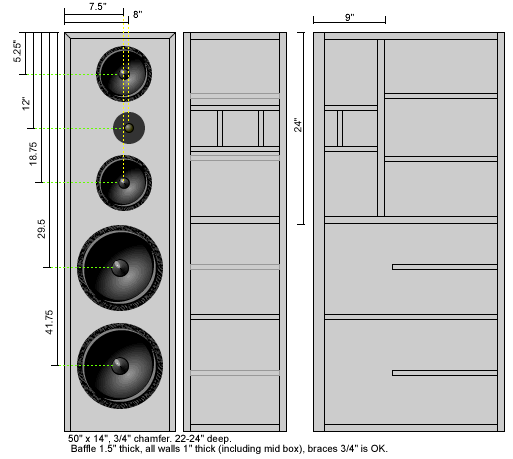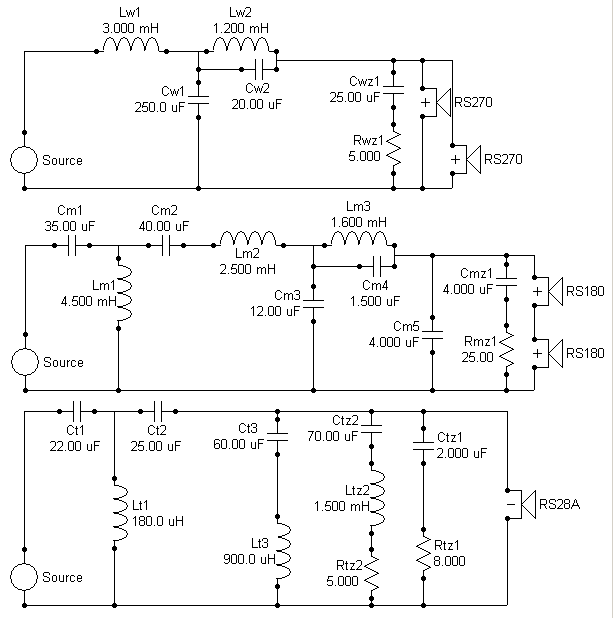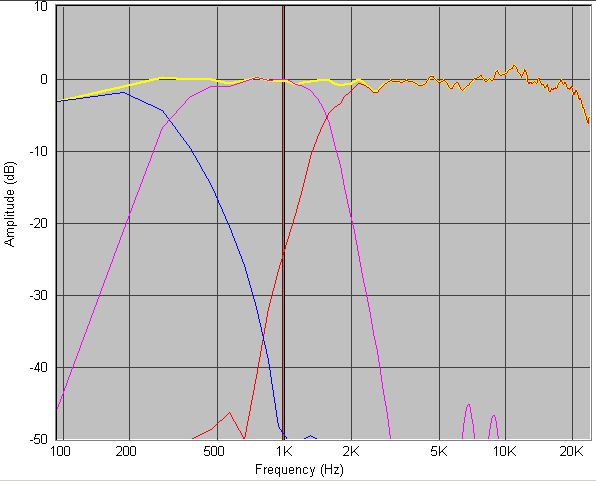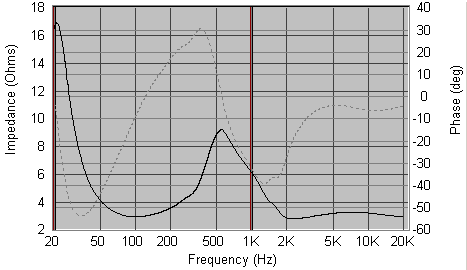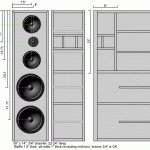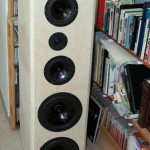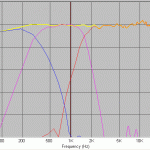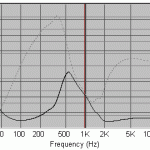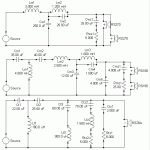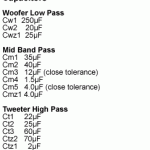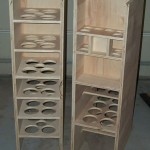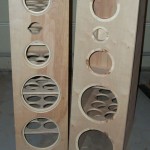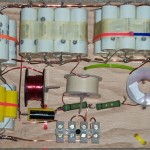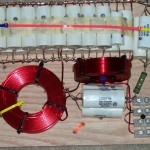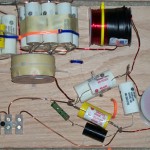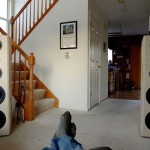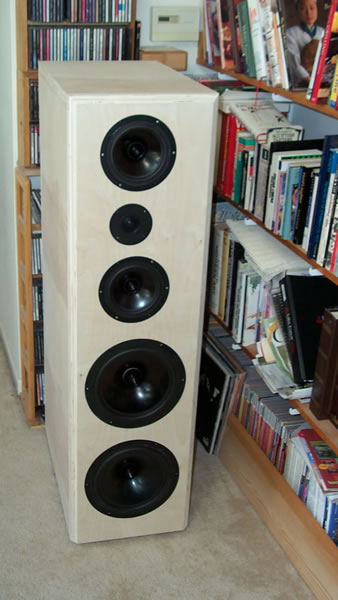 Long known just as “cjd’s WWMTM” this now has a name, and a home. A (very) large sealed design using a single 28mm tweeter, a pair of 180mm (7″) mid-woofers, and a pair of 270mm (10″) woofers, all sealed. Extension in-room is solid through the 30’s and extends into the upper 20Hz range. Do not skimp on the box size – it’s just not worth it. The lower range will close up and become dynamically constrained, losing ability to render fine low-level detail and generally seeming to struggle.
Long known just as “cjd’s WWMTM” this now has a name, and a home. A (very) large sealed design using a single 28mm tweeter, a pair of 180mm (7″) mid-woofers, and a pair of 270mm (10″) woofers, all sealed. Extension in-room is solid through the 30’s and extends into the upper 20Hz range. Do not skimp on the box size – it’s just not worth it. The lower range will close up and become dynamically constrained, losing ability to render fine low-level detail and generally seeming to struggle.
This is not what most would consider a simple design, but they continue to be my favorites. More effortless, fuller sound, detail where you want it and listenable for hours on end. They’re a very tough load on an amplifier – 2Ω stable is recommended, though not required. A 4Ω stable amplifier is an absolute requirement.
This has been tested with the new un-shielded versions of the drivers and no problems exist. The newer RS28S-4 tweeter, on the other hand, will likely become overly hot due to the compensation this includes for the top end of the RS28A-4 tweeter.
As usual, please pay attention to inductor impedance over gauge – impedance is what matters. These deserve all air-core, all poly caps, and where you are comfortable (but particularly for the tweeter) will benefit from capacitor upgrades. Except where noted, caps can be 5% tolerance, but in cases where the same value is required in two places with different tolerance requirements, I’ve listed them separately – you can just get more of the higher tolerance if you choose. Resistors should be 10W or higher rated.
Build Info
Bill of Materials, stereo pair
- RS28A-4 (2)
- RS180-8 (4)
- RS270-8 (4)
- 3.0mH 14ga .42Ω (2)
- 1.2mH 14ga .36Ω (2)
- 4.5mH 18ga 1.1Ω (2)
- 2.5mH 18ga .88Ω (2)
- 1.6mH 18ga .70Ω (2)*
- 1.5mH 18ga .69Ω (2)
- .9mH 18ga .48Ω (2)
- .18mH 18ga .18Ω (2)
- 100μF (4)**
- 70μF (2)
- 60μF (2)
- 50μF (2)**
- 40μF (2)
- 35μF (2)
- 25μF (4)
- 22μF (2)
- 20μF (2)
- 12μF 1% (2)
- 4μF 1% (2)
- 4μF (2)
- 2μF (2)
- 1.5μF (2)
- 25Ω (2)
- 8Ω (2)
- 5Ω (4)
** two 100μF and one 50μF for the 250μF capacitor values.
